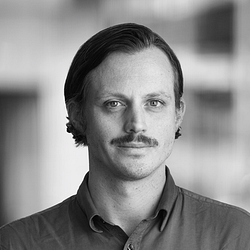
News -
This is why we invest in financial institutions and funds
An effective finance sector is fundamental for a country’s economic growth. By investing in banks and funds, Swedfund contributes to financial inclusion, job creation and sustainable businesses.
An effective financial sector is the foundation of economic growth. By effective, we mean that it is financially inclusive, and covers both small and medium-sized enterprises, as well as low-income workers, women, the unemployed and people living in extreme poverty.
Limited access to loans
Access to loans and bank services in developing countries is extremely limited. Only 34 percent of the population of Sub-Saharan Africa have a bank account, according to the World Bank.
Swedfund invests in banks and funds in the world’s poorest countries. This gives small and mediumsized enterprises access to essential financing for sustainable and profitable growth, and in a manner which contributes to poverty reduction by offering jobs, a strong tax base and participation in knowledge and capacity building.
Here are a couple of examples of bank investments from 2016:
- The equivalent of SEK 85 million invested in XacBank, Mongolia. The bank has a clear focus on climate change, running projects such as Clean Air, in which businesses are offered financing to enable them to switch to more energy-efficient operations.
- In September 2016, in partnership with the Dutch development finance institution, FMO, we signed a loan agreement with NMB Bank in Zimbabwe. The loan is for SEK 42 million. This financing will support growth among small and medium-sized enterprises in Zimbabwe. The bank supports vulnerable groups and women entrepreneurs in particular, and this is fully in line with our investment pillars.
Funds allow us to broaden our reach
As a complement to investing in financial institutions – particularly banks – Swedfund invests in funds.
Fund investment makes it possible to reach more businesses, and smaller businesses, in a cost-effective way, in countries in which Swedfund lacks a local presence. Many funds have development finance institutions as investors, when institutional investors are not fully prepared to take the particular risk involved. In many cases, the development finance institutions’ capital is a prerequisite for the fund’s existence.
Funds constitute approximately 27 percent of our portfolio. We place equally stringent standards on a fund investment as we do in other investments in respect of impact on society, sustainability and financial viability.
Focus on women
The equality perspective is now central to our investment decision. The inequality faced by women at all levels in commercial life is a major impediment to sustainable development. The exclusion of women also extends to access to financing. Women-owned small businesses receive, on average, only around 10 percent of the loans that financial institutions make to small and medium-sized enterprises. More than 70 percent of women-owned SMEs report difficulties in gaining access to financing. By investing in financial institutions and funds which focus on financial inclusion for women, we help accelerate Agenda 2030:
- During 2016 we have decided to invest the equivalent of SEK 183 million in the Women Entrepreneurs Debt Fund (WEDF). The fund finances female businesses and entrepreneurship in developing countries. Other investors include the World Bank via IFC, the Second AP Fund and the Dutch development finance institution, FMO.
- During 2016, we disbursed the second (around SEK 43 million) of two loans to Cambodia’s largest bank, Acleda. This is enabling them to expand their lending in rural districts and promote increased employment. The majority of the bank’s customers are women.
At the end of the year, we held 29 investments in financial institutions and funds. This is equivalent to around 51 percent of the total contracted amount in Swedfund’s portfolio.
